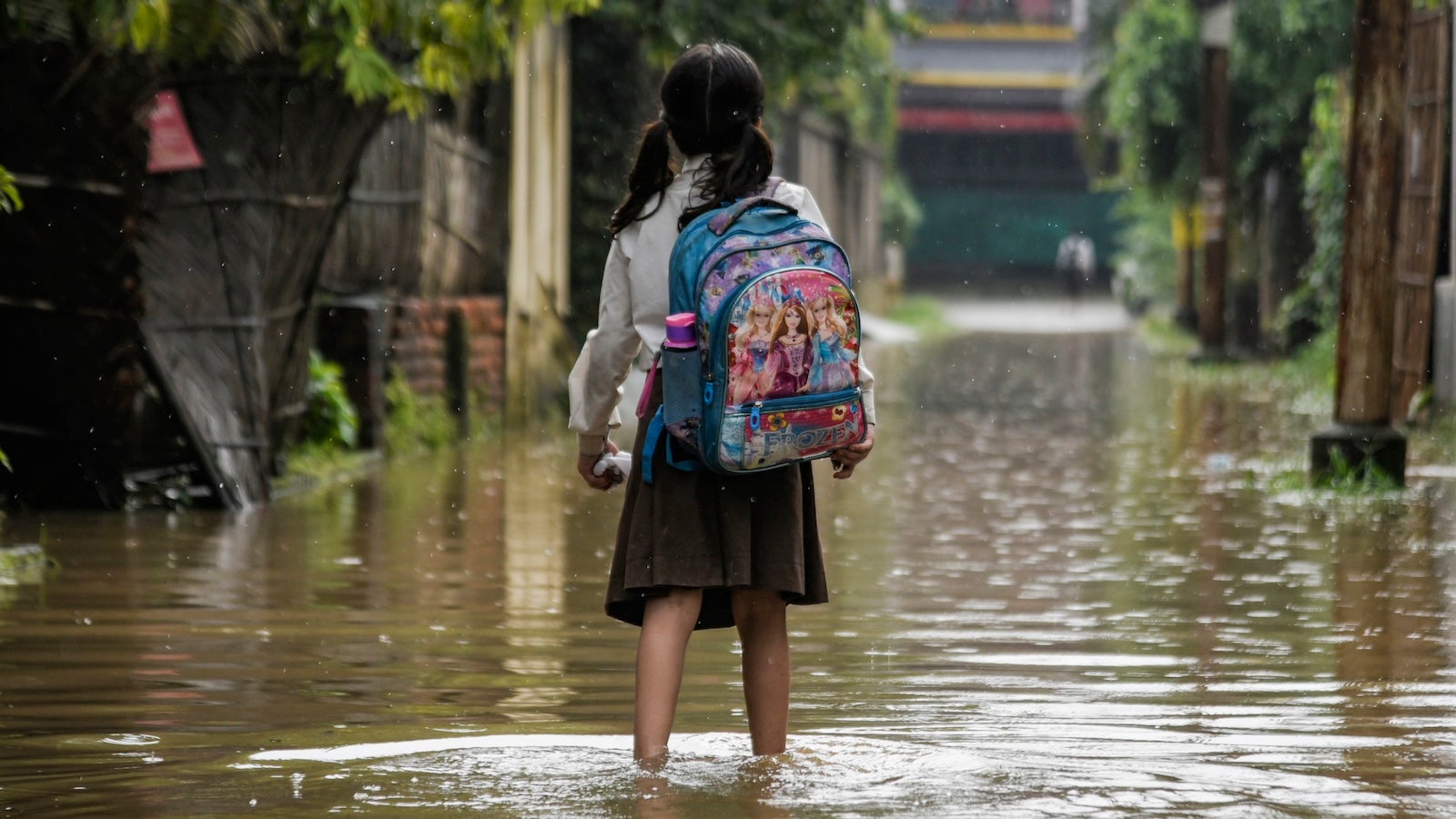Ask the Ethicist: Having Kids In a Time of Crisis
Is it ethical to bring children into the world if I think they’re going to suffer?
Question: I’ve always wanted to have children, and I know Judaism considers procreation a major mitzvah. But I’ve grown increasingly pessimistic about the future, particularly around climate change. I genuinely believe my children would grow up in an overheating world of increasing scarcity and political peril, particularly for Jews. Is it ethical to bring children into the world if I think they’re going to suffer?
Judaism does indeed consider procreation a major mitzvah. That’s not the whole story, though it’s an easy assumption to make, especially if you take a trip to some ultra-Orthodox neighborhoods. Curiously, the size of the average ultra-Orthodox family has declined to 6.1 children from 7.5 over 20 years. Still, that’s a lot of kids.
The Talmud (Yevamot 63b) says that one who refrains from procreation is considered as if they have diminished the divine presence. And Maimonides says that aside from the commandment in Genesis 1:28 to “be fruitful and multiply,” there is an additional obligation tacked onto that verse to “fill the world” with people. It’s as if God is commanding us to take up every nook and cranny of the planet with little humans.
Before we start protesting at some divine design for overpopulation, we should add that this commandment was first uttered back when there were fewer people around, so overcrowding was not a concern. Even so, the sages didn’t want people just continually having kids out of a Torah-driven compulsion to fill the world. If that were happening, nothing else would ever get done — important things like milking cows and studying Torah. So they needed to figure out how many children is enough.
In the Talmud (Yevamot 61b), one opinion (the school of Shammai) holds that one may not desist from being fruitful without having at least two boys. Another opinion (the school of Hillel) says at least one boy and one girl. Either way, two kids is enough — a surprisingly low figure for traditional societies, but the rabbis didn’t want to make fulfillment of this commandment onerous.
As for your concerns about messing up the planet, let’s take a look at the third clause of that same biblical verse, Genesis 1:28: “Be fruitful, multiply and fill the earth and have sovereignty over it.” What does sovereignty mean? The Hebrew word used here is most often translated as “conquest.” Does that imply that we should all have so many kids that we overwhelm and abuse the earth’s resources?
Rabbi Shai Held proposes that it means precisely the opposite: As God’s delegated sovereigns of the earth, the ones created in God’s image, we have been given the special responsibility of representing God’s rule in the world. We aren’t conquerors so much as custodians assigned to run the place — and we had best not mess it up.
As God tells Adam and Eve in a famous midrash, “Look at My works. See how beautiful they are, how excellent! For your sake I created them all. See to it that you do not spoil or destroy My world — for if you do, there will be no one to repair it after you.”
What’s most relevant here is that, using Rabbi Held’s interpretation, the focus on custodianship can be traced back to the very same verse that also commands us to fill the earth with kids. They are part and parcel of the same obligation. Having kids means caring for our precious planet — but only if you are committed to raising caring kids. If you dedicate your parenting toward passing that green torch to your child(ren), you will leave this world a better place than you found it.
So (deep breath and drumroll) yes, having kids is an ethical choice. But having kids needs to be part of the solution and not the problem. If it is a feasible and safe option for you at this stage in life, I recommend giving it a go.
Things aren’t great now, but in some ways, they were much worse a century ago. I am in awe that so many people who survived the Holocaust chose to have children, despite what they experienced. Without downplaying our serious environmental and geopolitical challenges, believe it or not, the world has never been safer for children and other living things. Some estimate that in talmudic times, the mortality rate for infants was as high as 30 percent. Now, it’s 5.6 deaths per 1,000 births.
Rabbi Jonathan Sacks wrote, “Having children is more than a gift. It’s a responsibility. For us as Jews it’s the most sacred responsibility there is. On it depends the future of the Jewish people. For four thousand years our people survived because in every generation, Jews made it their highest priority to hand their faith on to their children.”
Yes, we are bringing children into an increasingly dangerous world, and they will feel pain at times, as we all do. If pain avoidance were the overriding priority, no one should ever have signed up for this being-a-human thing, climate change or no climate change. But your children will also be touched by love — your love, and the love of friends and neighbors. And who knows, it might be your child who cures cancer, discovers a new source of renewable energy or brings about world peace. That’s one reason why we welcome the prophet Elijah to every brit milah (circumcision). He will be the one to herald the coming of the messiah, and any newborn (not just boys) could be the one who leads us out of this mess. No pressure!

No comments:
Post a Comment